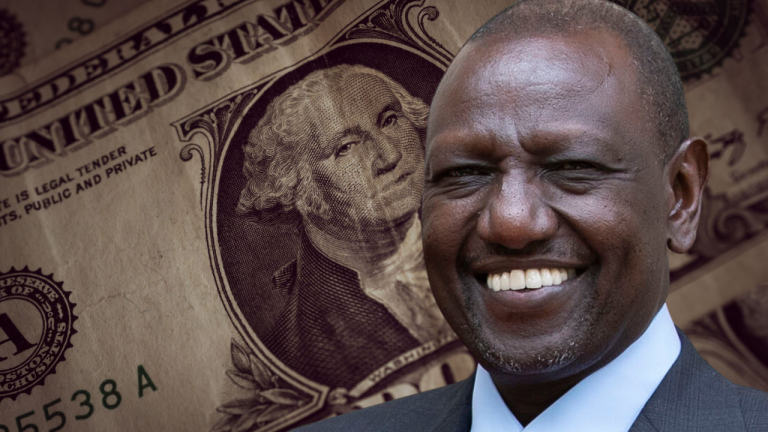
Kenyan President William Ruto has repeated his call on African countries to consider ditching the U.S. dollar when settling cross-border trades. The Kenyan leader claimed that the African continent already has a mechanism that enables the seamless settling of transactions between traders. Further, freedom advocate and entrepreneur Kimdotcom said as more countries reject the greenback the “U.S. Govt will pay a higher price for printing money.”
Ruto: African Traders Do Not Need to Settle Using the Greenback
Kenyan President William Ruto has again urged African countries to consider settling cross-border transactions with their respective currencies instead of the U.S. dollar. In his remarks made while addressing the Djibouti parliament, Ruto argued that the African continent’s Afreximbank already has the mechanism in place to enable seamless settling of transactions between traders.
Just In: President of Kenya, @WilliamsRuto, Urges African Nations to Dump the US Dollar for Intracontinental Trade. WATCH pic.twitter.com/mHE8Bshquv
— Simon Ateba (@simonateba) June 13, 2023
The latest remarks by the Kenyan leader, whose country is among several African nations facing dollar shortages, come just a few weeks after he similarly implored his counterparts to kickstart the process to ditch the U.S. dollar. As reported by Bitcoin.com News, Ruto believes trade between African countries is already hampered by the differences between their respective currencies. He said asking traders to source U.S. dollars only makes things worse.
‘We Are Not Against the U.S. Dollar’
In a video circulating on social media platforms, Ruto doubled down on his earlier call on African countries to de-dollarize, but said that “we are not against the U.S. dollar.” He also questioned why Kenyan and Djibouti traders need to settle transactions using the greenback. He asked:
Why is it necessary for us to buy things from Djibouti and pay in dollars? Why? There is no reason. And we are not against the U.S. dollar, we just want to trade much more freely. Let us pay in U.S. dollars what we are buying from the U.S.
According to the Kenyan leader, African countries ought to settle trades occurring on the continent using local currencies.
Commenting on Ruto’s remarks, internet freedom advocate and entrepreneur Kimdotcom warned of the consequences for the United States if more countries were to heed the call.
“Africa says bye to the US dollar. The President of Kenya, William Ruto urges African nations to dump USD under tumultuous applause. With every nation that rejects USD as reserve currency the US Govt will pay a higher price for printing money (inflation),” Kimdotcom said.
Register your email here to get a weekly update on African news sent to your inbox:
What are your thoughts on this story? Let us know what you think in the comments section below.
from Bitcoin News https://ift.tt/PYLBWFc
Comments
Post a Comment